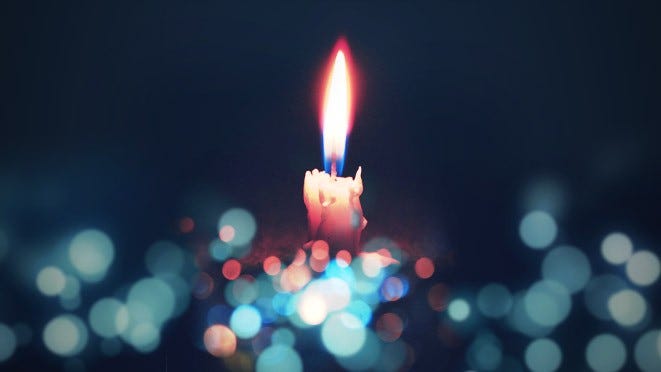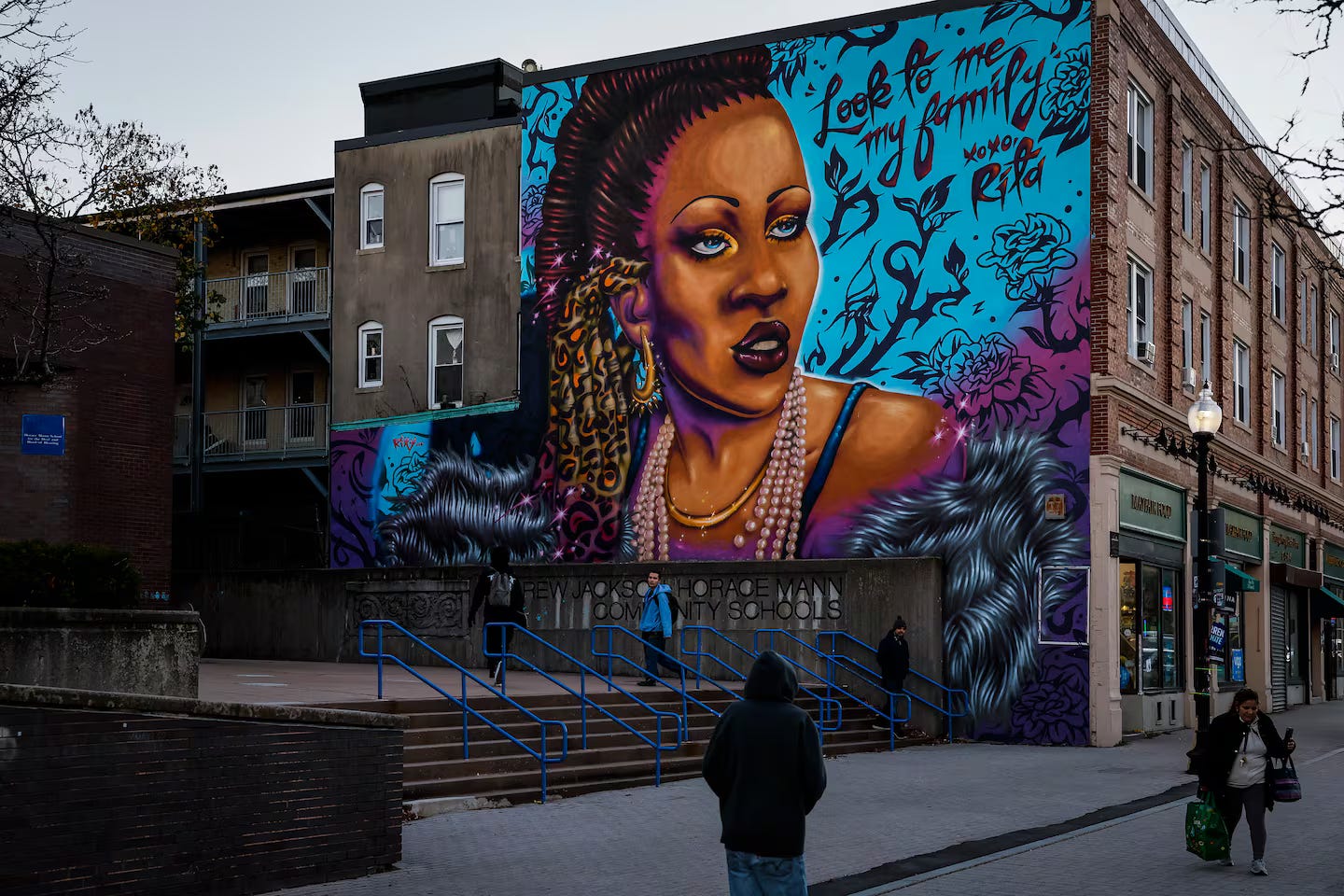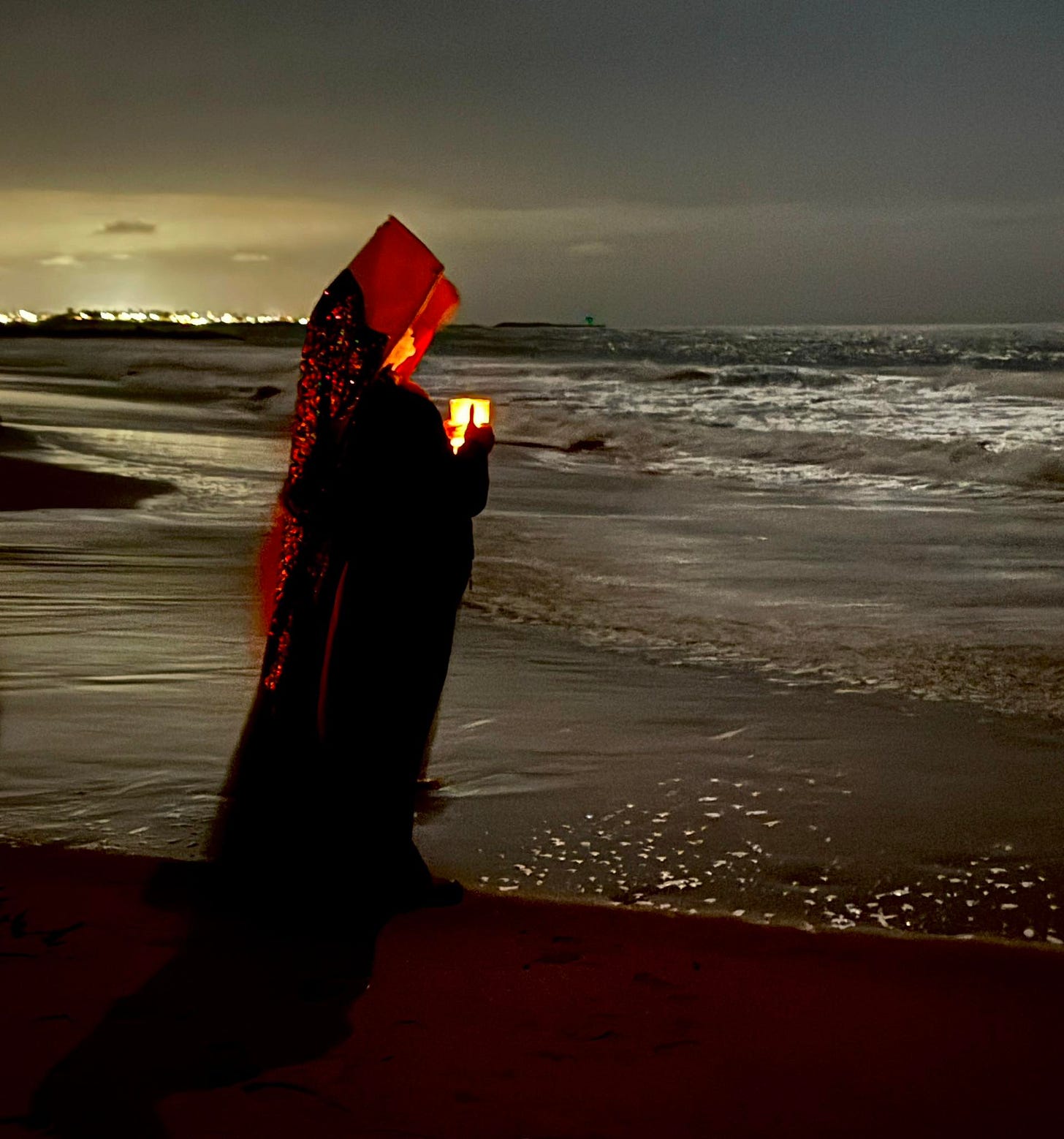In Our Own Name
The Story of Trans Day of Remembrance and the Ritual of Reclamation
Transgender Day of Remembrance is a complicated ritual, especially in a community for whom ritual is complicated. And especially today, when we find ourselves under seemingly constant attack. As we pause to recognize a year that included 69 lives lost to violence, we have to also recognize a year that included 616 anti-trans state bills, 101 federal bills, 6 executive orders, a history-making Supreme Court decision, and 3 more cases on the way. Those numbers have consequences. Research has linked policies like these to a massive increase in violence, a consequence some policymakers seem to not only accept but delight in.
For the last several TDOR observances, I had my own inside view of policymaking from within the federal government. I spent most of my time there at the Department of Education, where I had the honor of serving as chief of staff in the Office for Civil Rights. There is maybe no greater evidence for the power of an educated populace than how hard those same policymakers are working to shut down the Department this week. So, in the spirit of resistance to that wholly self-implicating endeavor, I wanted to give a quick history lesson.
What we now know as the Transgender Day of Remembrance started in the mid-90s after a series of murders in Boston, predominantly of Black transgender women. It was a time when the media, if it covered trans people at all, did so as either a nameless victim or a Godless predator. The targeted killing of our ancestors almost never made the news, and when it did it was nearly without exception as a salacious headline and under a deadname – a name used prior to transition. As it almost always is, the violence was the message: you either don’t exist, or you don’t deserve to.
26 years ago, on this night, a group of trans people gathered to grieve the murder of their sister. Her name was Rita Hester. The Boston media had covered her death, but had predictably sensationalized it. In their coverage of her final hours, they talked about her “double life,” her “strange transgender lifestyle,” and her work as a “call girl.” Newspapers made the intentional editorial decision to misgender her. When they used her name at all, they put it in quotes. But, more often, they used a name she had never wanted to hear again.
It was the community of beloveds she’d built around her, her family, that made sure she was grieved the way she deserved, with love and respect – and in her own name.
That naming turned out to be her legacy. Every year since that night, the trans community has gathered for a ritual of our own making to honor those we’ve lost in the past year by grieving them the way they deserve. One by one, we recite the names we know, and honor the ones we don’t.
Later tonight we will read this year’s names aloud, as we have many years before. A reminder that we have always been here. And still, most of those names will belong to people a lot like Rita Hester. Most will belong to transgender women and girls of color. Many will belong to Black people, and many will belong to sex workers. These days, we also include those who have died by suicide. The youngest souls on the list this year were fifteen years old. One of them was Parker Savarese. I include Parker’s name here specifically because, like Rita, their obituary did not. I include their name because it should catch in our throat. They all should.
Because actually, Trans Day of Remembrance is and has always been about more than memory. It’s about grief.
And we find ourselves, today, in a moment of profound grief. The names we read tonight will be a reminder that the fear many of us are feeling right now isn’t without reason. We know that fear falls most heavily upon the most marginalized. We know what happens when a group of people is seen as inherently dangerous or disposable. But we also know what protects them: strong community, culturally-competent care, and people who speak up. Set against erasure, violence is a message made louder when we are silent.
In 1999, when members of Rita’s family spoke up about the way their sister was being spoken of in the media, the Boston Phoenix published an article titled Displaced Anger: Is Rita Hester’s Murder Being Eclipsed by the Transgender Community’s Grammatical Agenda? It’s not a stretch to imagine that headline could be written today. Every time we open the paper, trans people are told that we are at fault for everything from autism rates to presidential elections. That our fault lies not in our actions or our character but in our very name.
If one name is all it takes to do all that, it must be a pretty powerful name.
Tonight, we will read 69 of those names in a ritual to reclaim that power from the twin violence of execution and erasure. A ritual to grieve our beloveds and welcome our ancestors. A ritual to honor the change that’s possible when what gathers us together is fierce love. So that one day, one year, the number of names we read will be zero. Make no mistake. That day is coming. In Rita Hester’s name. In Parker Savarese’s. In our own. That day is coming.
.




